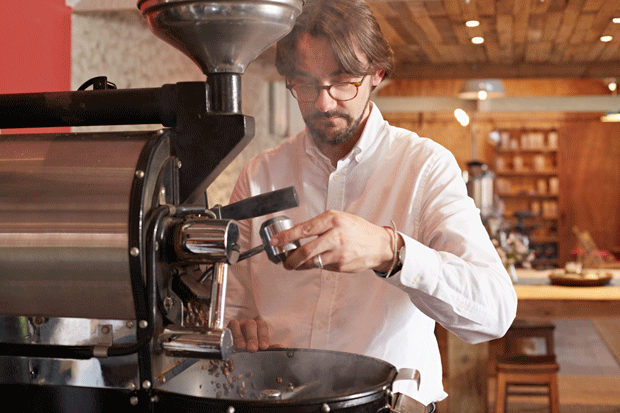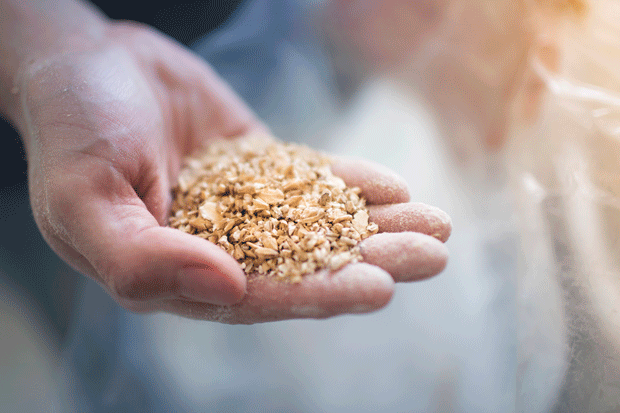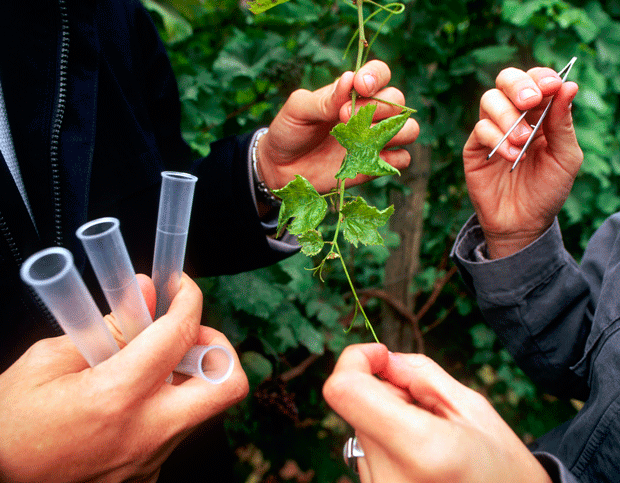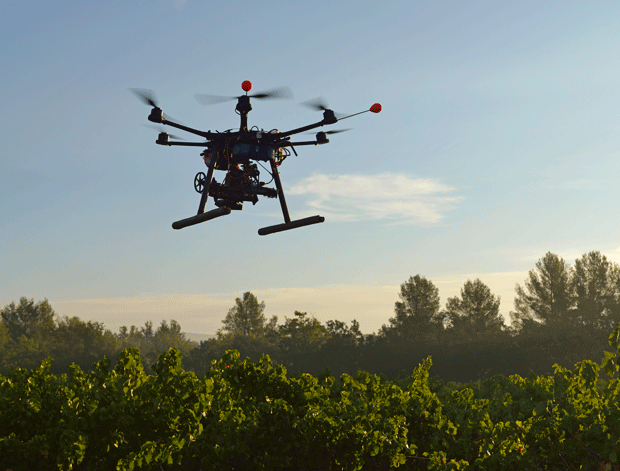Jul 29, 2015 Schools
We live in a time when the global population is exploding, increasing by around 100 million people each year. In 10 years’ time, there could be eight billion people living on a planet that 50 years ago was home to just three billion. Of the many challenges this population explosion is creating, perhaps the most pressing is the demand for food.
New Zealand’s economy has long been dominated by agriculture and there has never been a more important time for agriculture than right now. Far from suggesting our economy has to diversify beyond its traditional landbased strengths, the global demand for agricultural produce and expertise means it’s more important than ever for the good of the planet.
But, for the good of the country, the focus needs to shift away from raw agricultural production.
As part of its future capability report, the Ministry for Primary Industries has carried out analysis identifying that if we’re going to achieve a doubling of exports, the majority of that increase will come further down the value chain, away from the point of production.
“That’s actually good news,” says Jeremy Baker, Lincoln University’s deputy vice-chancellor, “because we probably can’t afford to grow our volume of physical product being grown off the land too much more without impacting to a level that we probably wouldn’t find acceptable on the environment. So we’ve got to find ways of adding a lot more value to that, which means finding people with skills all along the value chain actually turning those raw products into different, more valuable kinds of products.”
 Baker runs the numbers on those currently working in the land-based sectors in New Zealand. Only around 120,000 people from our workforce of two million are currently working on the land. But there are another 115,000 working in processing and distribution, another 115,000 working in tourism, hospitality, sport and recreation, which are driven off the land, and another 100,000 in property and finance, which are also land-driven sectors. With another 40,000 working in support and technical roles, that’s roughly half a million people working in landbased industries across the full value chain.
Baker runs the numbers on those currently working in the land-based sectors in New Zealand. Only around 120,000 people from our workforce of two million are currently working on the land. But there are another 115,000 working in processing and distribution, another 115,000 working in tourism, hospitality, sport and recreation, which are driven off the land, and another 100,000 in property and finance, which are also land-driven sectors. With another 40,000 working in support and technical roles, that’s roughly half a million people working in landbased industries across the full value chain.
New Zealand’s traditional export markets of Europe and North America are being usurped by Asia. Not just China, but the full range of the world’s most populous region, and increasingly there is a need to position our exports in a way that appeals to those markets. It can’t be business as usual, and it won’t be.
“We need people,” Baker says, “Who have the skills and capabilities to take the raw materials that we’re very, very efficient at producing here – we’re incredibly efficient at taking sunshine and water and turning those into protein and fibre – but what we need is people to take those down the value chain. That means we need a lot more science, a lot more design and a lot more business acumen. Those three areas are absolutely critical.” If we’re successful, Baker says, we will see more people working in the design of the products we sell, innovating and creating to find new, more valuable ways to produce them.
“Take coffee in New Zealand for example,” Baker says. “We’ve gone from drinking the most dire stuff imaginable to actually being world leaders and we don’t even produce the raw material here, which is really interesting. Or take beer, where we used to drink a large amount of pretty average stuff and now there’s the craft beer explosion. Or if you go back even a little bit earlier and look at the story of wine in New Zealand, which is a great success story, showing how you can combine a raw material, a tourism experience and a lot of design, marketing and business acumen to really reach out across the world and sell.
“We need to do the same thing with our meat, our dairy products, our other horticultural products. And there are signs that that’s beginning to happen.”
New Zealand’s mild climate, low population density and great infrastructure mean it is set up to do incredible things, Baker explains. We’ve got a skilled and well-educated workforce, a relatively trustworthy governance structure and a banking system which hasn’t suffered from any of the scandals that have blighted some overseas economies.
We’ve got a lot of ticks in the right boxes, Baker says, in terms of positioning ourselves to be this kind of high value, land-based producing economy.
“What I’m suggesting is that people start thinking about the next 10 years and investing in developing themselves – if they’re already in the workforce – or young people and their families thinking about, ‘What are the career options?’ I would suggest that this is the future of New Zealand.
“There are a whole raft of capabilities required but it’s useful for people to understand the context within which those capabilities are going to need to be deployed.”
It’s about understanding that our future is likely to be designed around food and fibre, and that the success for New Zealand will come from building on our competitive advantage as one of the most efficient producers of protein and fibre in the world.
“But,” Baker adds, “It’s also about adding a lot more value to that and ideally doing it in a way that reduces the environmental footprint.”
Several governments have looked at our economy and suggested that we need to shift its focus, Baker says, to becoming an ICT capital or banking capital. But that hasn’t happened. Instead, the economy has chugged along and continued to produce the things it’s good at.
That’s likely to continue, he says, which means the potential is obvious. Where the wine industry saw the light and took action that made it a world leader, some other sectors haven’t yet seen the need to, so when they do, they could make a massive impact on the way we all earn a living.
“In some sectors, we are so successful producing protein at a relatively cheap price that we haven’t focused enough on adding value. Milk powder is a classic example. There is enormous additional value to be extracted out of milk powder and all the other proteins that are available in milk and if we do that and turn it into high value artisanal products like cheese – or you can take it into nutraceuticals or into well-designed health foods – there are all sorts of things that can be done to take that product several more stages down the value chain.”
It’s a line of thought that is echoed by Lincoln Professor of Economics, Paul Dalziel.
 “We do need to diversify,” he says, “But we need to diversify on our historical strengths. So it doesn’t mean starting new industries from scratch. It means the industries that we already have become more diverse and strengthened by moving into new markets, providing new brands that are trusted by the consumer. So it’s not a black and white issue of we go with what we have or we start something new; it’s about building on what we have to create new things.”
“We do need to diversify,” he says, “But we need to diversify on our historical strengths. So it doesn’t mean starting new industries from scratch. It means the industries that we already have become more diverse and strengthened by moving into new markets, providing new brands that are trusted by the consumer. So it’s not a black and white issue of we go with what we have or we start something new; it’s about building on what we have to create new things.”
Much as we now have craft beer, we could soon see ‘craft milk’, ‘craft cheese’ so on, but we could also see high-end scientific products, some of which we haven’t even imagined yet. For instance, it’s possible to extract the proteins from milk and produce high-end polymers.
These are the possibilities that are out there, and the opportunities for our economy and our people to fulfil them are enormous.
“It will be a team effort,” Dalziel says. “So there will be opportunities in a wide range of occupations, but what we really require are people who understand the science, who understand the commercial opportunities and people who understand the policy framework within which international trade and food safety and questions like that take place.
“So we want specialists who are good at the science, good at the commerce, good at the policy, but also people who are able to communicate between those three branches, to maximise the value to New Zealand producers from the international opportunities.”
Or, as Baker puts it: “You can’t just do the science – you’ve got to actually get the design and creative flair and inspiration to turn the product into something that customers want to buy and then you’ve got to have the business acumen to put the supply chain in place to get them through to the market.
“We actually have all those capabilities, but we’ve got to put them to use. We have to have enough of the right people and I would suggest that we don’t have enough people in those areas yet, and that’s where I think some of those incredible labour market opportunities are: for people who have those capabilities.”










